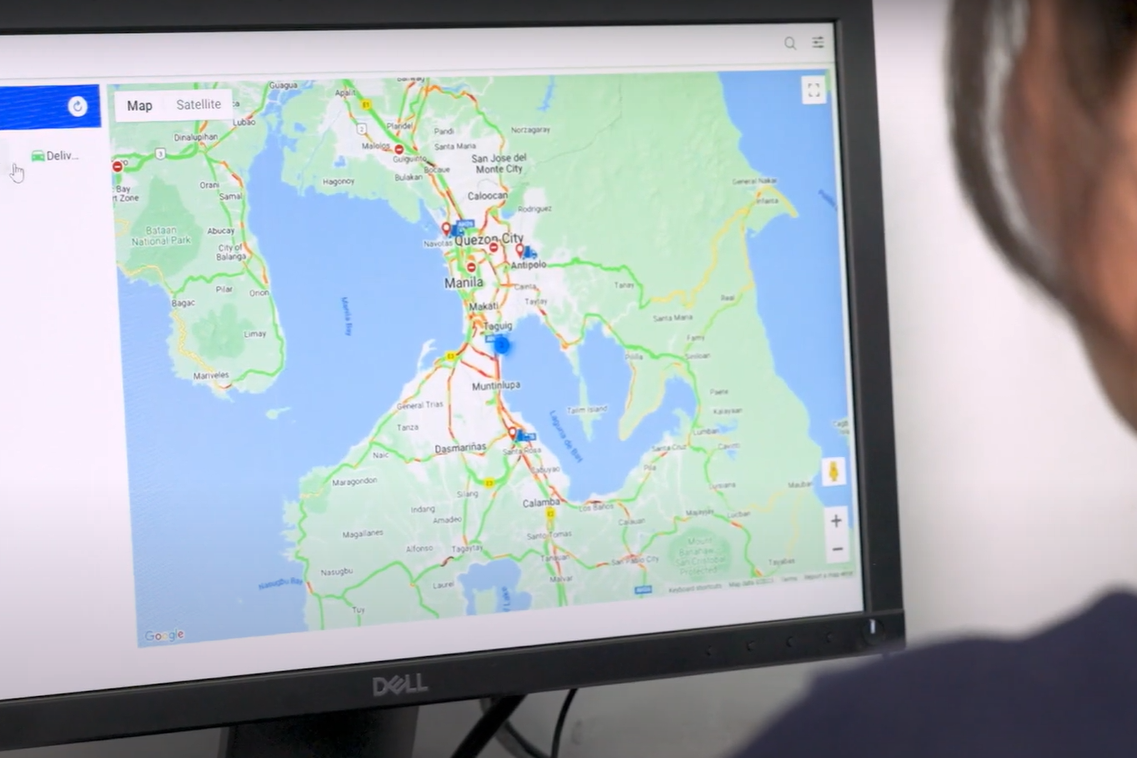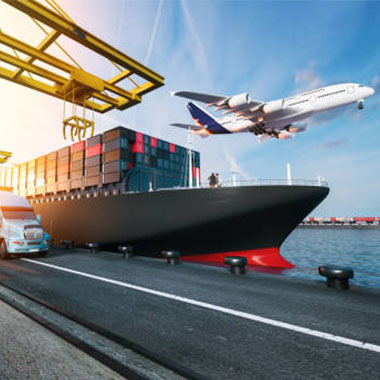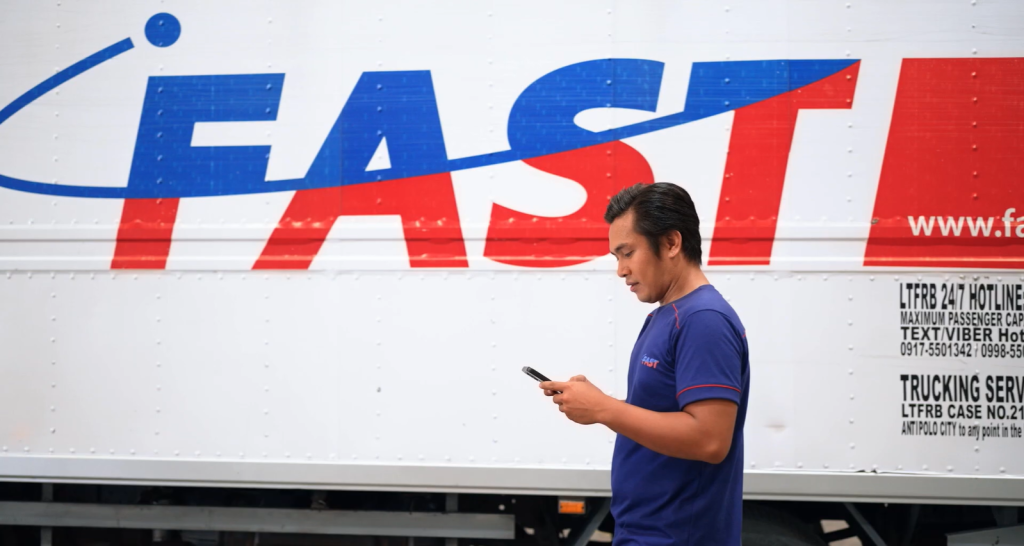
FAST Logistics Group, the leading provider of end-to-end logistics solutions in the Philippines, highlights the role of Transport Management System in sustainability initiatives and transportation operations.
Companies are increasingly recognizing the importance of integrating sustainable practices into their operations. This includes reducing carbon footprints, utilizing renewable energy sources, and promoting ethical supply chains. By adopting these practices, businesses not only contribute to reducing environmental pollution but also enhance their reputation, attract eco-conscious consumers, and align with government goals and commitments.
With the help of technology and digital tools, businesses optimize their supply chain operations and reduce their negative environmental impacts. These modern systems empower them to contribute to global efforts to combat climate change.
Among these technological advancements is the Transport Management System. By optimizing various aspects of transportation activities, TMS helps companies reduce emissions, save more, and improve overall efficiency.
How Transport Management System Contributes to Achieving Sustainability
Leveraging a Transport Management System allows companies to significantly reduce their transport costs, carbon footprint, and environmental impact in several ways. Here’s how.
Optimizes Route Planning to Reduce Fuel Consumption
One of the most significant ways TMS contributes to sustainability is through optimized route planning and transport methods. With TMS and its sophisticated algorithms, supply chain leaders and drivers can determine the most efficient routes for delivery vehicles, avoid congested areas, and select shorter distances.
In addition, TMS can factor in real-time traffic data to adjust routes dynamically. This means that if there is an unexpected traffic jam, the system can reroute vehicles to avoid delays and unnecessary idling. This level of adaptability ensures that fuel consumption is kept to a minimum, contributing to a greener logistics operation.
Beyond environmental benefits, optimized route planning also translates to cost savings for companies. Lower fuel consumption directly impacts the bottom line, making sustainability a financially viable strategy.

Enhances Load Utilization to Minimize Empty Runs and Carbon Emissions
Another crucial benefit of TMS is its capacity to improve vehicle utilization. Empty runs, where vehicles travel without cargo, contribute significantly to inefficiencies and higher carbon emissions in logistics. TMS minimizes these empty runs by ensuring vehicles are loaded with goods whenever they are on the road.
By intelligently matching shipments with available vehicle capacity, TMS ensures that every trip is as productive and energy efficient as possible. This not only reduces the number of trips required but also maximizes the use of each vehicle, leading to more efficient and sustainable transport management.
Furthermore, better vehicle utilization means fewer vehicles are needed, which can reduce the company’s operating costs and idle time. This is especially important for large logistics operations where the impact of even small improvements can be substantial for profit and productivity.
Facilitates Fleet Scheduling and Dispatching
Efficient fleet scheduling and dispatching are crucial for achieving sustainability in logistics. TMS excels in this area by providing real-time visibility into fleet operations. This allows logistics managers to schedule and dispatch vehicles in a way that maximizes efficiency and minimizes environmental impact.
Notably, TMS can help ensure that vehicles are dispatched based on their proximity to delivery locations, reducing unnecessary travel distances. It can also prioritize the use of newer, more energy-efficient vehicles for longer routes to reduce emissions.
In addition to improving efficiency, effective fleet scheduling and dispatching can enhance customer satisfaction. Timely deliveries are more likely when vehicles are dispatched optimally, leading to happier customers and a better brand reputation.
Reduces Idling Time Through Better Traffic Management
Idling in logistics operations is a significant contributor to unnecessary fuel costs and harmful emissions. TMS addresses this issue by providing better traffic management systems and real-time route adjustments. By monitoring traffic conditions and providing alternative routes, TMS can help reduce idling time and keep vehicles moving efficiently.
If a delivery vehicle encounters unexpected traffic congestion, TMS can suggest an alternative route to avoid delays. This not only reduces fuel consumption but also ensures timely deliveries, improving overall operational efficiency.
In addition to real-time traffic management, TMS can analyze historical traffic data to identify patterns and plan routes that minimize idling. This proactive approach to traffic management is another way advanced transportation systems contribute to sustainable logistics.
Facilitates Real-Time Tracking to Avoid Unnecessary Detours
Real-time tracking is a powerful feature of TMS that enhances visibility and control over logistics operations. By providing real-time location data for delivery vehicles, TMS helps avoid unnecessary detours and ensures that shipments stay on track.
With real-time tracking, logistics managers can monitor the progress of deliveries and make adjustments as needed. If a vehicle deviates from its planned route, the system can alert the supply chain manager and provide corrective actions to get it back on track. This level of oversight minimizes unnecessary travel and leads to fewer emissions.
Real-time tracking also improves accountability and transparency in transportation operations. With TMS, customers also receive accurate updates on the status of their deliveries for increased trust and satisfaction.

Encourages Good Driving Practices for Fuel Efficiency
Human factors play a significant role in the environmental impact of logistics and transport companies. TMS can encourage good driving practices that enhance fuel efficiency and reduce emissions. By monitoring driver behavior, TMS can provide feedback and incentives to promote eco-friendly driving habits.
TMS can provide real-time guidance to drivers. Its advanced algorithms can suggest optimal driving speeds and routes to maximize fuel efficiency. These small adjustments can add up to significant environmental benefits over time.
Moreover, some transportation systems can track metrics such as acceleration, braking, and speed. Drivers who consistently demonstrate fuel-efficient driving can be rewarded, while those who need improvement can receive targeted training. This approach not only reduces fuel consumption but also promotes a culture of environmental sustainability in the transportation sector.
Improves Maintenance Scheduling to Ensure Efficient Operation
Regular maintenance is essential for keeping vehicles running efficiently and reducing their environmental impact. TMS plays a crucial role in this by providing automated maintenance scheduling. By tracking vehicle usage and performance data, TMS can predict when maintenance is needed and schedule it accordingly.
Timely maintenance ensures that vehicles operate at peak efficiency, reducing fuel consumption and emissions. It also helps prevent breakdowns and extends the lifespan of vehicles, which is beneficial for both the environment and the company’s finances.
Advanced TMS solutions can even integrate with vehicle telematics to monitor engine performance, tire pressure, and other critical parameters in real-time. This data-driven approach enables proactive maintenance, further enhancing the sustainability of logistics operations.
Enhances Communication Among Key Players in the Supply Chain
Effective communication is essential for achieving sustainable logistics. TMS facilitates seamless communication among all key players in the supply chain, from suppliers and manufacturers to distributors and retailers. This level of coordination ensures that everyone is aligned and working towards common sustainability goals.
TMS can provide real-time updates on shipment status, allowing all stakeholders to make informed decisions. They can be addressed promptly if there are any delays or issues, minimizing their impact on the supply chain.
In addition to improving communication, TMS can provide valuable insights and analytics that help stakeholders identify opportunities for further sustainability improvements. Organizations can collectively work towards sustainable logistics by sharing data and best practices.

Reducing Greenhouse Gas Emissions in Supply Chain Management
Transportation is a significant contributor to air pollution, greenhouse gas emissions, and noise pollution. The logistics sector, in particular, plays a critical role in this environmental impact due to the movement of goods from one place to another. The traditional transportation methods used by logistics companies are generally fossil fuel-based and result in high carbon emissions. This contributes significantly to climate change and other environmental issues.
In recent years, the pressing need for businesses and logistics companies to adopt sustainable practices has become undeniable. Reducing greenhouse gas emissions in supply chain management has become a top priority. Businesses now are also mindful of their gas mileage and carbon footprint and work to optimize transport routing, reduce empty miles, and embrace technology solutions that promote sustainability. Companies are also adopting renewable energy, electric vehicles, and alternative fuels to enhance energy efficiency and reduce air pollutants and greenhouse gases in the environment.
In addition, software solutions such as TMS play a crucial role in achieving sustainable logistics operations by optimizing fleet scheduling, improving maintenance scheduling, reducing idling time, avoiding unnecessary detours, promoting eco-friendly driving practices, and enhancing communication among key players in the supply chain. As technology continues to advance, we can further expect greater reductions in global greenhouse gas emissions. Watch this video below to learn more.
Adopting Transport Management System in the Philippines for Sustainable Transport
Adopting a Transport Management System can significantly improve transport operations and promote sustainable logistics practices in developing countries such as the Philippines. Sustainability professionals and logistics managers should integrate TMS into business operations to reduce environmental impact, enhance operational efficiency, and align with consumers’ growing preference for eco-friendly brands.
FAST Logistics Group, the leading end-to-end logistics in the Philippines with over 50 years of industry leadership, is utilizing its own TMS in its logistics operations. Designed by the company’s IT experts, FAST TMS is a comprehensive suite of software solutions and applications that automate every step of transport operations, making it more efficient and eco-friendly.
Moreover, FAST TMS offers significant advantages over manual processes and logistics solutions in terms of efficiency, cost savings, accuracy, visibility, scalability, data analysis, and better customer service. The system acts as the all-in-one logistics platform to manage the movement of goods within the supply chain, from truckers, sales directors, drivers, and customers.
Utilizing TMS is a strategic decision that enables businesses to contribute to achieving a more sustainable future. By leveraging advanced transportation systems, companies can realize significant benefits in operational excellence and performance. If you want to explore more about how TMS can transform your logistics operations, connect with our Solutions Expert or visit http://linktr.ee/fastlogisticsph today
Categories
-

FAST Ahead
Includes case studies and testimonials of our partners as well as other featurettes from industry experts
-

FAST Hacks
We simplify logistics terms and provide practical tips and solutions for the DIY in you
-

FAST Highlights
Know more about our history, various brands, achievements, and news updates
-

FAST Moments
Get to know the people of FAST, our employee programs, as well as our various ways of giving back to the community
-

FAST Solutions
Learn more about the various logistics solutions that we cater to and offer our clients, as well as tech innovations, and service facilities



